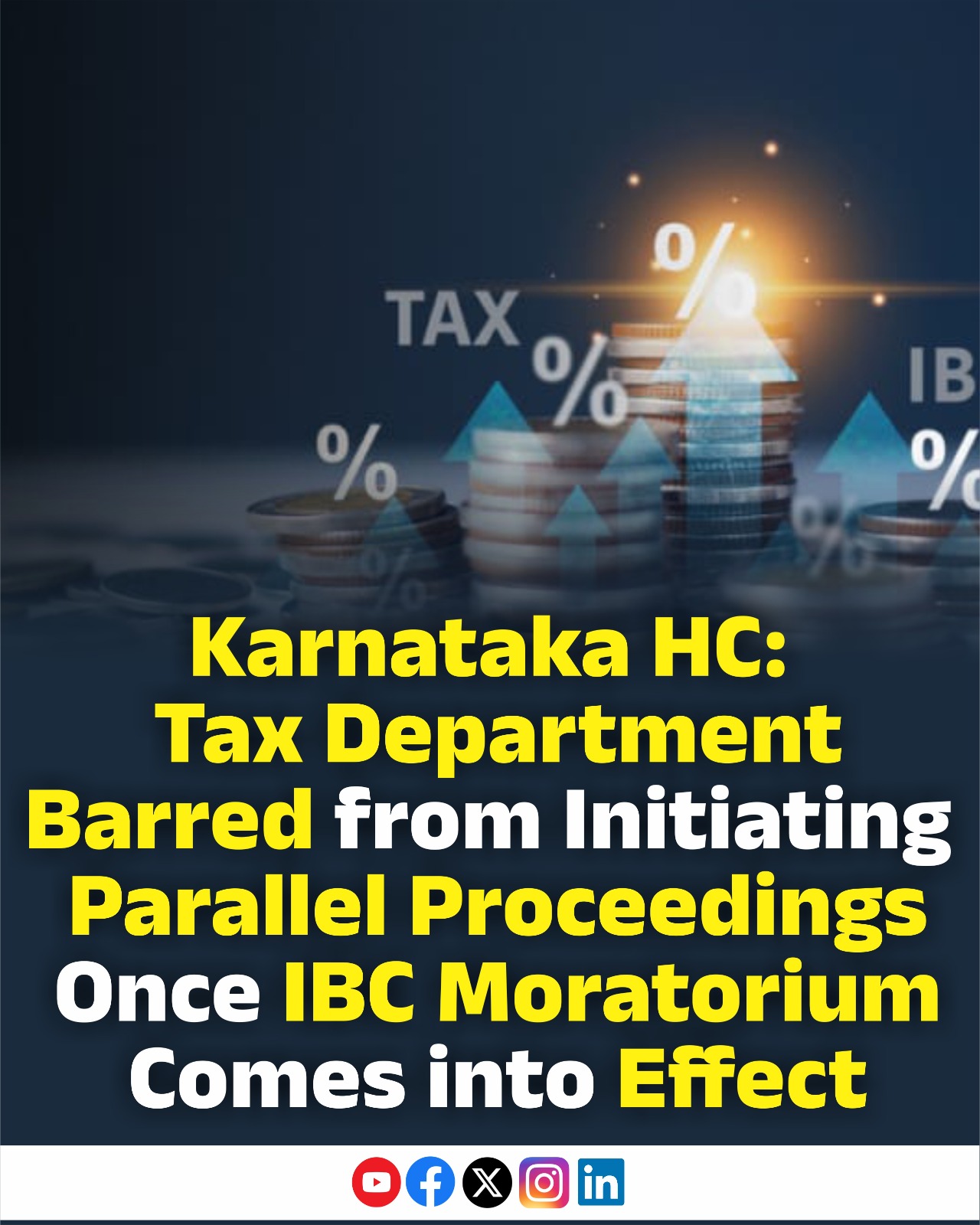The Karnataka High Court (Bengaluru Bench) ruled that claims of the sales tax authorities would stand extinguished if they had not taken part in the resolution process and had not submitted their claims in the resolution plan. Accordingly, no demand can be made in respect of claims that have been extinguished.
The Court reiterated that once a moratorium under Section 14 of the Insolvency and Bankruptcy Code, 2016 (IBC) is declared, the proceedings can happen only before the resolution professional. There is no jurisdiction to parallelly initiate proceedings and raise a demand.
Additionally, the Court clarified that in the light of CIRP becoming a moratorium, kicking in resolution plan acceptance up to the date of CIRP, all the claims are, therefore, before the resolution professional. Hence, if there is no claim registered by the State or the Centre, they would lose the right to demand from the corporate debtor.
Reference was made to the decision in the case of Ghanshyam Mishra vs Edelweiss Asset Reconstruction Company [(2021) 9 SCC 657] and Union of India vs Ruchi Soya Industries [2021 SCC OnLine Kar.15698], where it was held that “on the date of approval of resolution plan by the adjudicating authority, all such claims, which are not a part of resolution plan, shall stand extinguished and no person will be entitled to initiate or continue any proceedings in respect to a claim, which is not part of the resolution plan”.
A single Judge Bench of Justice M. Nagaprasanna further observed that after the declaration of moratorium, the Revenue Authority has no power to assess the quantum of duties and submit its claims. Reference was made to the decision in the case of ABG Shipyard Liquidator vs Central Board of Indirect Taxes and Customs [(2023) 1 SCC 472], where it was held that “once moratorium is imposed in terms of Sections 14 or 33(5) of the IBC as the case may be, the respondent authority only has a limited jurisdiction to assess/determine the quantum of customs duty and other levies”.
The Bench therefore concluded that the assessment of duties and other levies by the revenue authorities after the declaration of moratorium is restricted to the statement of claims required to be submitted to the resolution professional. Accordingly, the Bench allowed the petition in favour of the corporate debtor and quashed the SCN as well as the order imposing tax demand by the Revenue Authorities.
Briefly, in this case, the petitioner company, engaged in the business of manufacturing consumer products such as I-Coffee, I-Pulse, and I-Charge, effects inter-state sales as well as export sales, which are subject to production of two different forms, C-form for the inter-state and H-form for export. During the course of the assessment, the Excise Superintendent (3rd Respondent) confirms a tax demand of Rs. 88.61 lacs being the differential tax liability on account of non-production of both forms in terms of the provisions of the Central Sales Tax Act.
Later, the petitioner paid the excise duty and thereafter, intimated the 3rd Respondent about the classification and claimed a benefit at a lower rate. Accordingly, the petitioner was subjected to assessment and audit by the Central Excise, where the classification of I-Coffee and I-Pulse came to be approved. When things stood thus, owing to certain financial difficulties, the petitioner approached the NCLT for the commencement of the Corporate Insolvency Resolution Process (CIRP), which led to the declaration of a moratorium.
Resultantly, the date Commissioner of Central Tax (2nd Respondent) issues a SCN proposing recovery of tax demand to the tune of Rs. 11.06 crores along with penalty and interest. The resolution professional, however, contended that the Revenue Authorities are prohibited from initiating any proceedings against the petitioner in light of the moratorium under Section 14 of the IBC still being in subsistence. After the NCLT approved the resolution plan, the ex parte assessment orders came to be passed, and the tax demand, along with penalty and interest, was saddled upon the petitioner. These ex parte assessment orders are called into question in the cases at hand.
Cases Relied On:
Ghanshyam Mishra vs Edelweiss Asset Reconstruction Company [(2021) 9 SCC 657]
Union of India vs Ruchi Soya Industries [2021 SCC OnLine Kar (15698)]
ABG Shipyard Liquidator vs Central Board of Indirect Taxes and Customs [(2023) 1 SCC 472]
Appearances:
Advocate Vinitha M., for the Petitioner/ Taxpayer
Advocates Pratibha R. and K. Hema Kumar, for the Respondent/ Revenue

